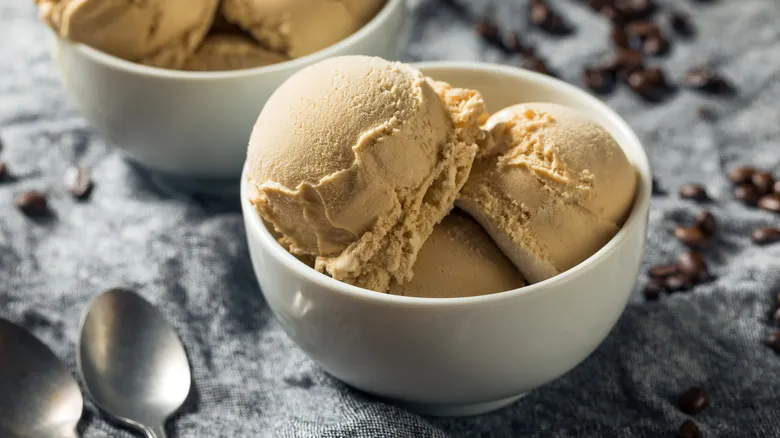Comparing coffee ice creams

Häagen-Dazs serves as a solid starting point since it contains a relatively average amount of caffeine for coffee ice cream. In contrast, other popular supermarket brands have considerably lower caffeine levels, with Breyer's offering 20 mg per two-thirds cup serving and Edy's/Dreyer's (which varies by region) containing just 15 mg per serving. On the flip side, Ben & Jerry's coffee flavors pack much more caffeine, averaging around 47-49 mg per serving. This includes options like "Coffee, Coffee, BuzzBuzzBuzz," featuring espresso bean fudge chunks, "Brewed to Matter," which has fudge chunks and brownie batter, and "Coffee Toffee Bar Crunch," loaded with toffee pieces.
Determining the minimum caffeine amount needed to feel a noticeable effect is challenging, as it differs from person to person; some may metabolize caffeine more rapidly or intensely than others. Unless you know you're particularly sensitive to caffeine, indulging in a midnight snack of coffee ice cream shouldn't disrupt your sleep. Plus, if you finish an entire Häagen-Dazs carton, you'll likely notice the 24 grams of sugar more than the caffeine content.
No buzz in coffee ice cream
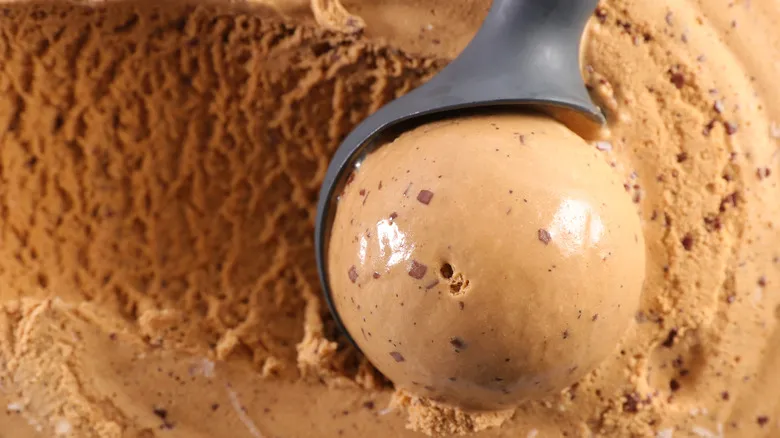
If you're curious about the caffeine content in coffee ice cream, making it at home is a straightforward option. Ice cream primarily consists of milk, heavy cream, and sugar, and for coffee ice cream, you simply incorporate coffee grounds, brewed coffee, or even espresso. In a typical homemade recipe, a pint usually contains around half a cup of coffee, which accounts for about a quarter of the final product. By making it yourself, you have the option to use decaffeinated coffee to avoid any caffeine concerns, and you can easily monitor the amount of coffee or espresso you add to ensure it gives you the desired boost. Additionally, if you own an ice cream maker, you can efficiently prepare a large batch of iced coffee as well.
Overall, the caffeine in ice cream is more akin to that found in Coca-Cola than in regular coffee. A can of Coke contains 34 mg of caffeine, while a can of Diet Coke has 46 mg. If you can enjoy a late-night soda, you should have no issues indulging in some coffee ice cream at night.
Recommended

The Golden Rule For Adding Rum To Coffee
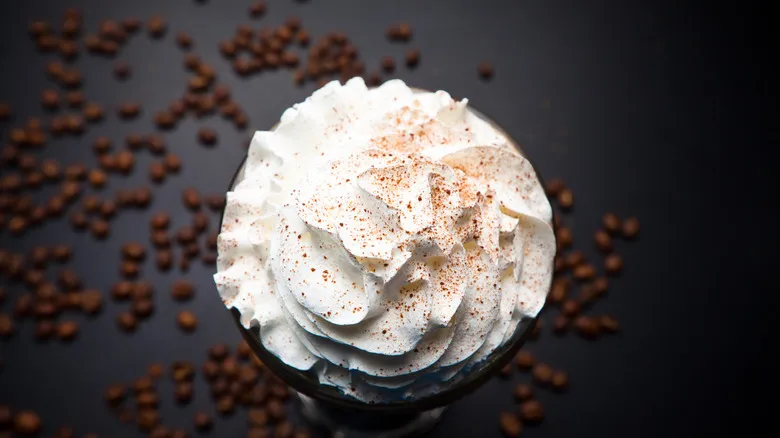
Freeze Whipped Cream For The Ultimate Coffee Topping
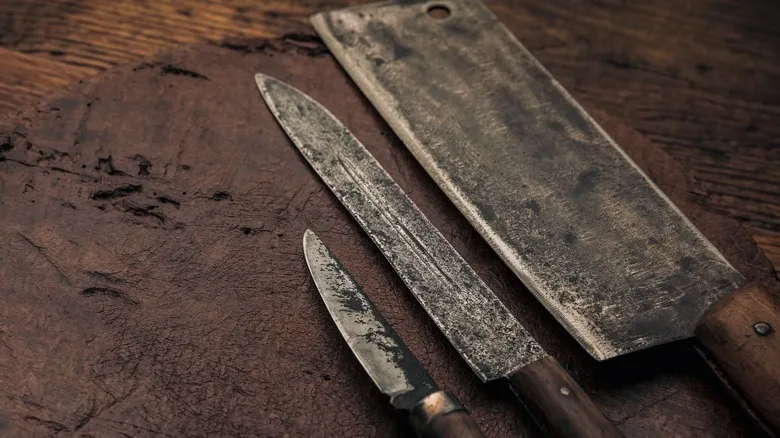
How A Coffee Patina Can Easily Protect Your Knives
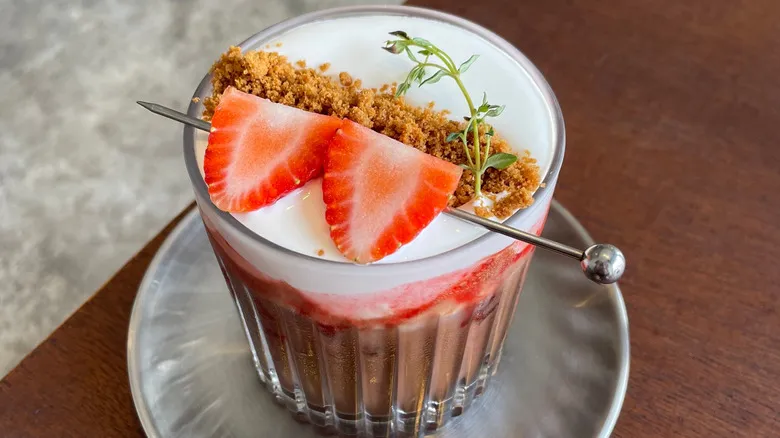
2 Ways To Easily Incorporate Fresh Berries Into Iced Coffee
Next up

